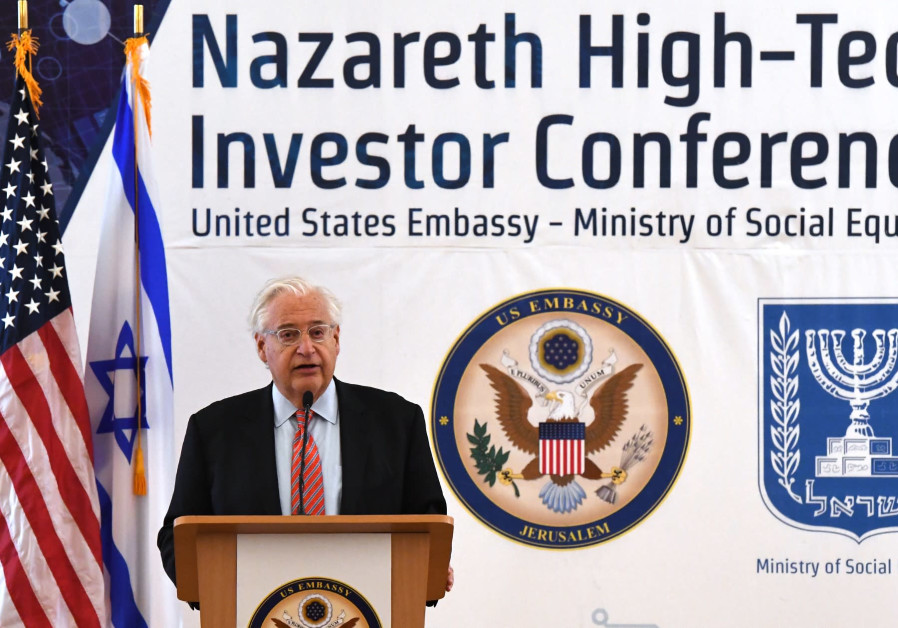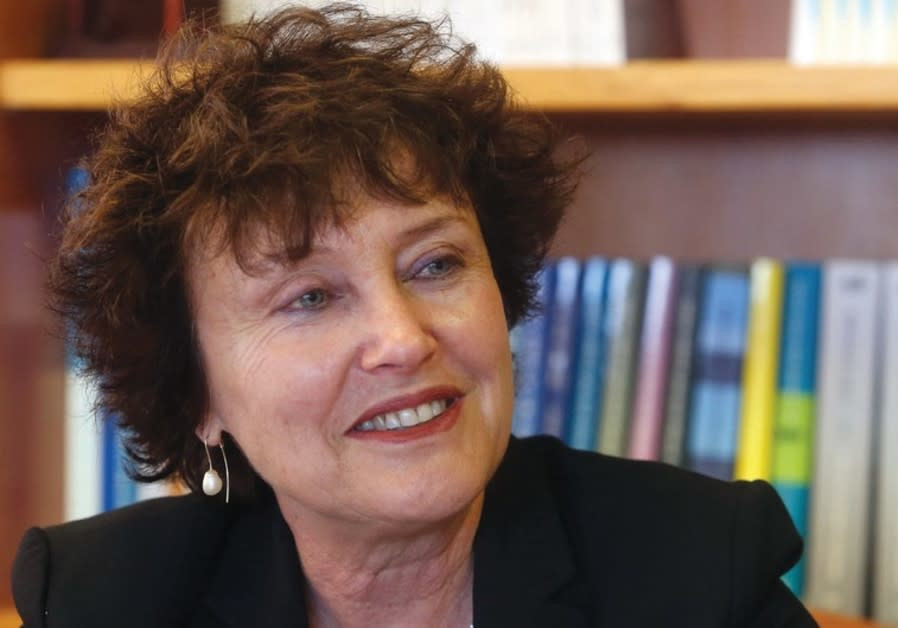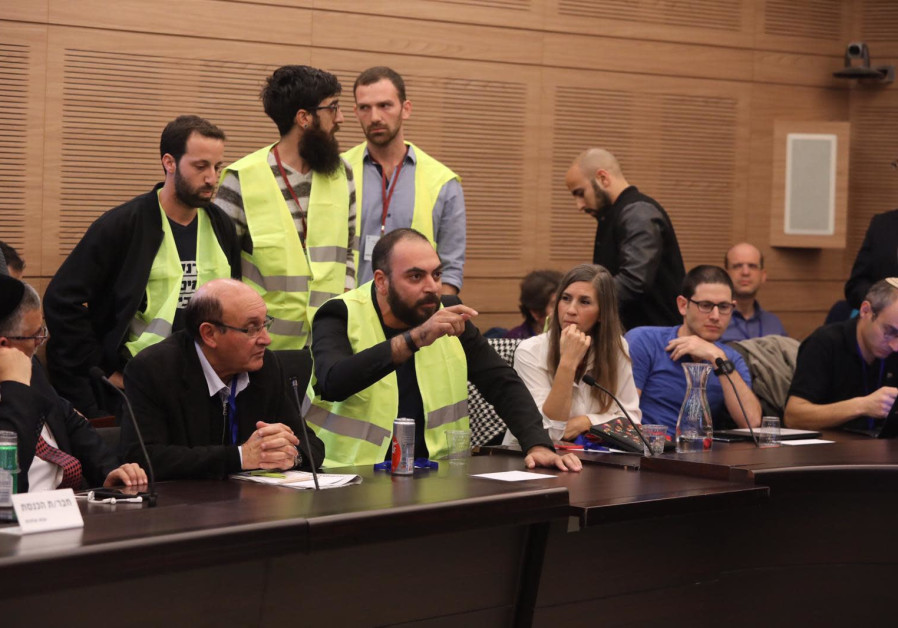Five Highs
1 - Israeli Hi-tech highlightsIsrael's status as the Start-Up Nation is no secret, and 2018 did not disappoint for those seeking big "exits" for Israeli innovation and its ever-growing global reach.Among the big winners this year were carbonated-drink maker Sodastream, acquired by PepsiCo in a deal worth $3.2 billion; electronics manufacture Orbotech, bought for $3.4 billion by California-based KLA-Tencor; and ingredient business Frutarom, which was purchased for a staggering $7.1 billion by the American company International Flavors & Fragrances.
Israeli hi-tech has not only received global recognition in the form of acquisitions and mergers, but rather in its being used regularly in emergency situations across the globe.
Only last week, Israeli anti-drone technology was used to reopen the UK’s Gatwick Airport after drones caused travel chaos for tens of thousands of passengers. In July, Thai authorities relied on emergency mobile communications tools developed by Israeli company Maxtech Networks in their extraordinary and successful efforts to rescue a young soccer team from a flooded cave in northern Thailand.


Until major discoveries of natural gas off Israel’s coastline in recent years, few would have dreamed of natural resource-poor Israel supplying former adversaries Jordan and Egypt with natural gas.
Today, Israel is poised to provide natural gas worth $26 billion to their Arab neighbors and has ambitious plans to construct a 2,000-kilometer pipeline to supply eastern Mediterranean gas to Europe.
Israel’s unexpected gas boon to date may be only the tip of its national energy iceberg, as scientists believe there are additional vast natural gas fields still to be discovered in the Levantine Basin.
Transforming from an energy-dependent nation to a supplier of natural gas is far more than financially lucrative. Rather, it has the potential to generate significant geopolitical change. For decades, the world’s dependence on Arab oil led countries to distance themselves from Israel – today, Israel is becoming an unexpected ally in the field of energy supply.
Domestically, the energy revolution overseen by Energy and Water Minister Yuval Steinitz in recent years has already seen close to 60% of Israel’s electricity production shift from coal to natural gas.
3 - Prime destination


Tourism-related revenue during November alone exceeded NIS 2.1 billion, and has surpassed NIS 20b. since January.
A report published by London-based market research company Euromonitor International earlier this month revealed that Jerusalem is the world’s fastest-growing tourist destination, with incoming tourism to the Israeli capital set to grow by 38% in 2018. Last year, Jerusalem tourism grew by some 32%.
“Let’s do business,” Minister of Tourism Yariv Levin told global hoteliers, entrepreneurs and senior representatives from international tourism chains, at the inaugural Israel Hotel Investment Summit in November, all of them seeking to take advantage of opportunities presented by a shortage of accommodation for the record-breaking numbers of tourists making Israel their vacation destination.
4 - Emergence of Arab-Israeli innovation


In 2016 alone, there were a greater number of Arab tech students than all the Arab graduates over the previous three decades. Today, 18% of all computer science students in Israeli universities are Arab – almost corresponding to their share of the population.
A series of programs and conferences this year have sought to catalyze the integration of the country’s Arab sector into the hi-tech field, including Start-Up Nation Central’s program – launched in October – to enhance Arab and ultra-Orthodox human capital in the Jerusalem hi-tech workforce.
The untapped potential of the Arab-Israeli hi-tech sector is now being recognized globally. Earlier this month, 30 emerging Arab-led start-ups pitched their innovative solutions to Israeli and American investors at the inaugural Nazareth Hi-Tech Investor Conference sponsored by the US Embassy in Israel and the Social Equality Ministry. In November, the British Embassy's UK Israel Tech Hub launched Arabtechport, a unique online resource aiming to empower the next generation of Arab entrepreneurs.
5 - Israeli academia: The birthplace of global innovation


Tel Aviv University, ranked eighth globally and the only non-American university in the top 10, has produced 640 entrepreneurs and 531 companies that have raised $7.91 billion in venture capital funding since 2006.
Seeking to boost investment in start-ups founded by students and alumni, the university launched TAU Ventures in April, the first academic-based venture capital fund in Israel.
Earlier this week, Ben-Gurion University's Center for Entrepreneurship launched Cactus Capital, a student-run venture capital fund established in partnership with fresh.fund. The $1 million fund will invest in start-ups managed by students, academics and recent graduate entrepreneurs.
Five Lows
1 - Tech shortage threatens Israeli innovation

The current lack of talent has led to an employees’ market in the tech sector, with wages 2.5 times greater than earnings in the general economy – the largest wage difference ratio in the world.
Looking for solutions to the growing shortage of skilled workers, tech firms have resorted to offshoring and hiring foreign experts through the granting of a special tech visa initiated earlier this year.
More worrying is the lack of demographic diversity in the Israeli hi-tech sector, which is largely dominated by secular Jewish men. A range of public and private initiatives seeking to increase Arab and ultra-Orthodox representation in the sector are underway, but it will take some years to see the results.
2 - Stuck in traffic
Earlier this year, Israel received the undesirable title of being home to the worst traffic in the Western world, according to the Organization for Economic Cooperation and Development and the International Monetary Fund.
In addition to traffic being a cause of everyday stress, the Finance Ministry estimates that productivity lost to sitting in traffic jams is worth some NIS 35 billion to the economy every year.
Since 2000, crowding on the country’s roads has grown by 63%, and the number of vehicles on Israel’s roads has increased by 84%, according to the Central Bureau of Statistics.
While increased public transportation options may seem to be the best course of action to solve Israel's overcrowded roads, it has been a mixed year for Israel's commuters. In September, Prime Minister Benjamin Netanyahu and Transportation Minister Israel Katz opened, partially, the severely delayed high-speed railway that will eventually link Jerusalem and Tel Aviv.
Currently shuttling passengers between Ben-Gurion Airport and Jerusalem's new Yitzhak Navon train station, there is currently no estimated completion date for the remainder of the electrified line, which will one day carry passengers from Tel Aviv to the capital within approximately 28 minutes.
3 - Financial infighting


In July, Flug informed Netanyahu that she would not be standing as a candidate for an additional term in office – a decision largely anticipated following several clashes with Finance Minister Moshe Kahlon during her tenure.
After Flug sharply criticized Kahlon’s flagship affordable housing project in April, the finance minister hinted that he would look for other candidates to replace her.
Speaking at his appointment ceremony on Monday, Yaron was quick to emphasize the “absolute independence of the Bank of Israel and the Monetary Committee” in setting monetary policy and the bank’s interest rate.
Yaron will have little time to settle in as he seeks to guide the bank through the financial system’s current slump. Only following the April elections will Yaron discover his counterpart for guiding the country’s economy in the coming years.
4 - Cost of living


Tel Aviv, Israel's commercial and cultural hub, is often the center of the protests. The city was ranked earlier this year as the ninth most expensive city in the world by The Economist's annual Worldwide Cost of Living Survey.
Protesters have demanded government action to slash gas prices by 60%-70%, implement recommendations for food industry reform and increase competition in all areas of the market.
Party leaders across the political spectrum, in their first comments after announcing April elections, already started to jostle for the position of the public’s premier ally in preventing price increases.
5 - Gaza communities struggle to recover
The weekly clashes on the Gaza Strip border between the IDF and Palestinian demonstrators have calmed down in recent months, but the damage caused to businesses on the Israeli side of the fence always lasts longer than any escalation in violence.
Damage caused to farmland by incendiary kites from the Gaza Strip is estimated to exceed $2 million in compensation alone. This is in addition to losses in income suffered by a raft of small- and medium-size businesses struggling to stay afloat, as many Israelis opted to stay away from Gaza border communities during the usually busy summer period.
In November, the Tax Authority presented improved compensation measures for residents and business owners of southern Israel. Those who stand to benefit from the proposals include tourism operators, business owners, parents forced to be absent from work and beekeepers from the region.
While compensation may provide short-term relief to those affected, the residents of Gaza border communities are keenly aware of the fragile nature of quiet in the region and of their businesses and income. Edited by Natan RothsteinRead all of the year's top highlights and lowlights:IDF | Palestinians | Legal system | Politics | American politics & relations | Diplomacy | Religion | Culture | Settlements
